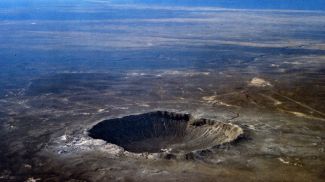BEIJING, 5 August (BelTA - China Daily) - China bashing has long been a favorite sport in the United States and some European countries, so it is quite surprising that Western mainstream commentators, over the past days, have been lambasting US House Speaker Nancy Pelosi for visiting Taiwan.
Pelosi, 82, sneaked into the Chinese island in the dark, before midnight on Tuesday, and flew out on Wednesday afternoon to boost her ego before, and increase the prospects of Democrats in, the US midterm elections in November which the Democrats look likely to lose. A CBS News survey, conducted between July 27 and 29, shows Republicans start the 2022 campaign with a lead, with the likelihood of having 230 seats in the House to 205 for the Democrats.
That is why Pelosi insisted on making the trip despite President Joe Biden telling journalists that US military officials believe it's "not a good idea" for her to visit Taiwan, and Biden's national security team explaining to Pelosi why she should not visit Taiwan now.
The New York Times columnist Thomas Friedman penned a scathing commentary on Monday, calling Pelosi's trip to Taiwan "utterly reckless, dangerous and irresponsible". "Nothing good will come of it. Taiwan will not be more secure or more prosperous as a result of this purely symbolic visit, and a lot of bad things could happen," Friedman wrote, adding that, "I seriously doubt that Taiwan's current leadership, in its heart of hearts, wants this Pelosi visit now."
Bonnie Glaser, director of the Asia Program at the German Marshall Fund of the US and known for her close Taiwan ties, and Zack Cooper, a senior fellow at the American Enterprise Institute and a former official at the Pentagon and the White House, too, argued that Pelosi's trip is "too dangerous" in their joint essay in The New York Times.
I have often disagreed with Glaser on Taiwan and the Chinese mainland, but she was right this time in saying that "Biden's misstatements on Taiwan are undermining the carefully devised policy that has kept the peace for decades", referring to the US president's remarks that the US has a commitment to defend Taiwan and Taiwan is "independent", but his White House staff quickly walked back his comment.
Also, Glaser and Cooper warned that "a single spark could ignite this combustible situation into a crisis that escalates to military conflict. Nancy Pelosi's visit to Taiwan could provide it".
In addition, former US ambassador to China Max Baucus told Sky News that the goal of US foreign policy on China is to reduce tension, not to raise it, and "clearly Speaker Pelosi's visit increases tension, unnecessarily…". The former US senator also called the trip "reckless and dangerous".
In an editorial on Monday, the Financial Times described Pelosi's visit as "ill-conceived and ill-timed", saying that "this is a moment of danger that calls for responsibility and restraint from both sides. The risk of Pelosi's visit should not be underestimated".
That the usually not so China-friendly Western media and pundits have been criticizing Pelosi means she has done something truly "reckless and dangerous", which risks a direct military confrontation between China and the US due to possible miscalculations.
Indeed, it is reckless and dangerous of Pelosi to directly challenge the one-China principle and threaten China's sovereignty and territorial integrity, something that the 1.4 billion Chinese people will never tolerate, and their determination to defend them should never be underestimated.
I pray that there never be a war across the Taiwan Straits. But for that, senior Western politicians such as Pelosi, who is second in line to the US presidency, should not be condoned for acting recklessly and irresponsibly, greatly increasing the possibility of a war. Nor should be condoned those on the Chinese island who pursue "Taiwan independence".
The author is chief of China Daily EU Bureau based in Brussels.
The views don't necessarily represent those of China Daily.
If you have a specific expertise, or would like to share your thought about our stories, then send us your writings at opinion@chinadaily.com.cn, and comment@chinadaily.com.cn.













